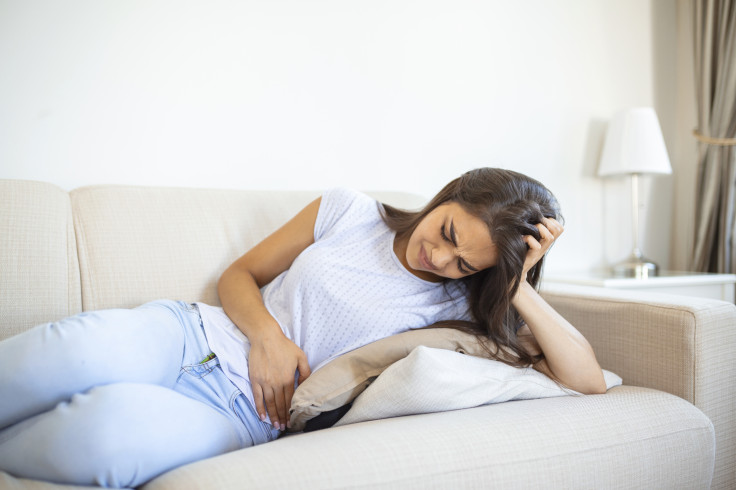
Endometriosis, a gynecological condition that affects 10% of women globally, is frequently undiagnosed as symptoms may often be mistaken for menstrual cramps or may not manifest noticeable signs. In the U.S., women typically endure an average of 10 years before an accurate diagnosis.
During this Endometriosis Awareness Month, understand the condition better from an expert who dispels common myths around it.
Endometriosis occurs when tissue similar to the inner lining of the uterus grows outside it, often leading to pain and infertility. Currently, endometriosis has no known cure. However, early diagnosis and effective treatment help in managing symptoms.
Here are some popular myths about endometriosis:
Myth-1 A person has endometriosis only if they have pain during the periods.
Fact: Signs of endometriosis include painful periods, excessive bleeding, pain or discomfort during sex, pain with bowel movements or urination, lower back pain, infertility, fatigue, diarrhea, constipation, bloating, and nausea. However, it is important to note that endometriosis can exist without any of these symptoms as well.
According to Dr. Molina Dayal, a board-certified obstetrician-gynecologist and fertility specialist at STLFertility in St. Louis, Missouri, endometriosis is a benign gynecological condition that can present in different ways.
"Many women with endometriosis may have painful menses, some may have pelvic pain even without menstruating, and some may have pain with sex. Several women can also have endometriosis without any symptoms at all! The only way to truly know if someone has endometriosis is to perform a surgery called a diagnostic laparoscopy to see if there are endometriotic 'lesions' or spots within the pelvis; these areas are then physically removed and sent for tissue confirmation of endometriosis. For some women, removing these areas of endometriosis will improve their symptoms," Dr. Dayal told Medical Daily.
Myth-2 Pregnancy can cure endometriosis
Fact- There is no complete cure for endometriosis. Some patients may experience regression during pregnancy.
"Pregnancy cannot cure endometriosis. However, endometriosis can recede due to the high amount of progesterone being made in pregnancy. Progression/growth of endometriosis is driven by estrogen. So, the lack of estrogen or the presence of a hormonal environment with limited estrogen (compared to progesterone) can cause regression of endometriosis. This is exactly the hormonal state of pregnancy – very high levels of progesterone relative to estrogen! This allows for endometriosis to recede but unfortunately, will not be completely eradicated," Dr. Dayal explained.
Myth -3 Endometriosis always causes infertility
Fact: There is no causal relationship, but endometriosis can affect fertility.
Endometriosis can impact fertility by distorting pelvic anatomy, inducing inflammation, altering immune function, hindering implantation, reducing egg/embryo quality, and disrupting normal embryo transport, explained Dr. Dayal.
However, Dr. Dayal noted that the hypothesis endometriosis causes infertility remains controversial. "While there is a reasonable body of evidence demonstrating an association between endometriosis and infertility, a causal relationship has not been perfectly established. That being said, endometriosis can cause scar tissue, which can distort a woman's pelvic anatomy, which can then impact fertility. If endometriosis does cause infertility, then eradication of the disease should improve fertility, however, medical and/or surgical therapy for endometriosis has not consistently shown to improve fertility and may only result in a delay in undertaking more effective fertility treatment to achieve pregnancy," she said.
"Classical studies suggest that 25% to 50% of women experiencing infertility have endometriosis and that 30% to 50% of women with endometriosis have infertility. The true prevalence of endometriosis is difficult to quantify as surgery is the gold standard for diagnosing endometriosis," Dr. Dayal added.
Myth-4 Endometriosis stops after menopause
Fact: Symptoms might get better and endometriosis may recede for some patients, but not for all.
"As endometriosis is driven by estrogen, when women undergo menopause, they stop producing estrogen which causes endometriosis to recede and sometimes disappear. That being said, some women may continue to have pain with intercourse if there is a significant amount of scar tissue that has resulted from having endometriosis. The scar tissue doesn't go away but the endometriosis that could make things worse disappears with the lack of estrogen," Dr. Dayal said.
"It is for this reason that a treatment for endometriosis, before the onset of menopause, is the use of Lupron. Lupron is a GnRH analog that puts women into a reversible state of menopause; it reversibly shuts down ovarian estrogen production and many women have a significant improvement in their symptoms while on Lupron. Once discontinued, the ovaries start producing estrogen again, and over time, symptoms may return," she said.







